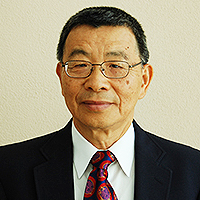Psychotropic drugs prescription block the positive effects of the doctor-patient communication and relationship
Published on: 18th February, 2021
OCLC Number/Unique Identifier: 9031343880
The fact that general practitioner (GP) or psychiatrist understands the psychosocial effects of prescribing on the doctor-patient relationship is as important, if not more so, than knowing pharmacology. Any prescription of drugs modifies the doctor-patient relationship. Drugs, especially psychotropic drugs, act on symptoms and change thoughts, feelings, and behaviors; they can create both physical and psychological dependency; they can discourage a deep search for real solutions, both on the part of the doctor and the patient; they can affect the doctor’s access to the patient and the problem will be out of their reach. Psychotropic drugs can make the effect of the doctor in himself as a drug more difficult, favor an insignificant or problematic or little human relational context, where the GP/psychiatrist does not delve into the true meaning of the symptoms, and the patient tends not to get involved, to make an emotional withdrawal, to be passive before the prescribed drug, and can result in the chronification and structuring of functional symptoms that become organic, with lack of cooperation of the doctor and the patient, and paradoxically with over-compliance or therapeutic discontinuity and the lack of pharmacological adherence, absences to appointments or delays or cancellations of visits, and the denial of responsibility of both the doctor and the patient.
How the COVID-19 outbreak affected physician-patient relationship
Published on: 17th November, 2020
OCLC Number/Unique Identifier: 8872699857
Physician-patient communication is the most basic element and vital skill of physicians in the diagnosis, treatment, and establishing diagnostic protocols. As the risks of contagion and viral infection are higher in physicians and health workers, front line soldiers inpatient care units, so they should establish strict protective measures. However, patients value greatly face to face and close relationships with their doctors, including facial interviews and physical examinations. So social and physical distancing between physician and their patients can be remarked as a bigger toll than the risk of COVID-19 contagious.




